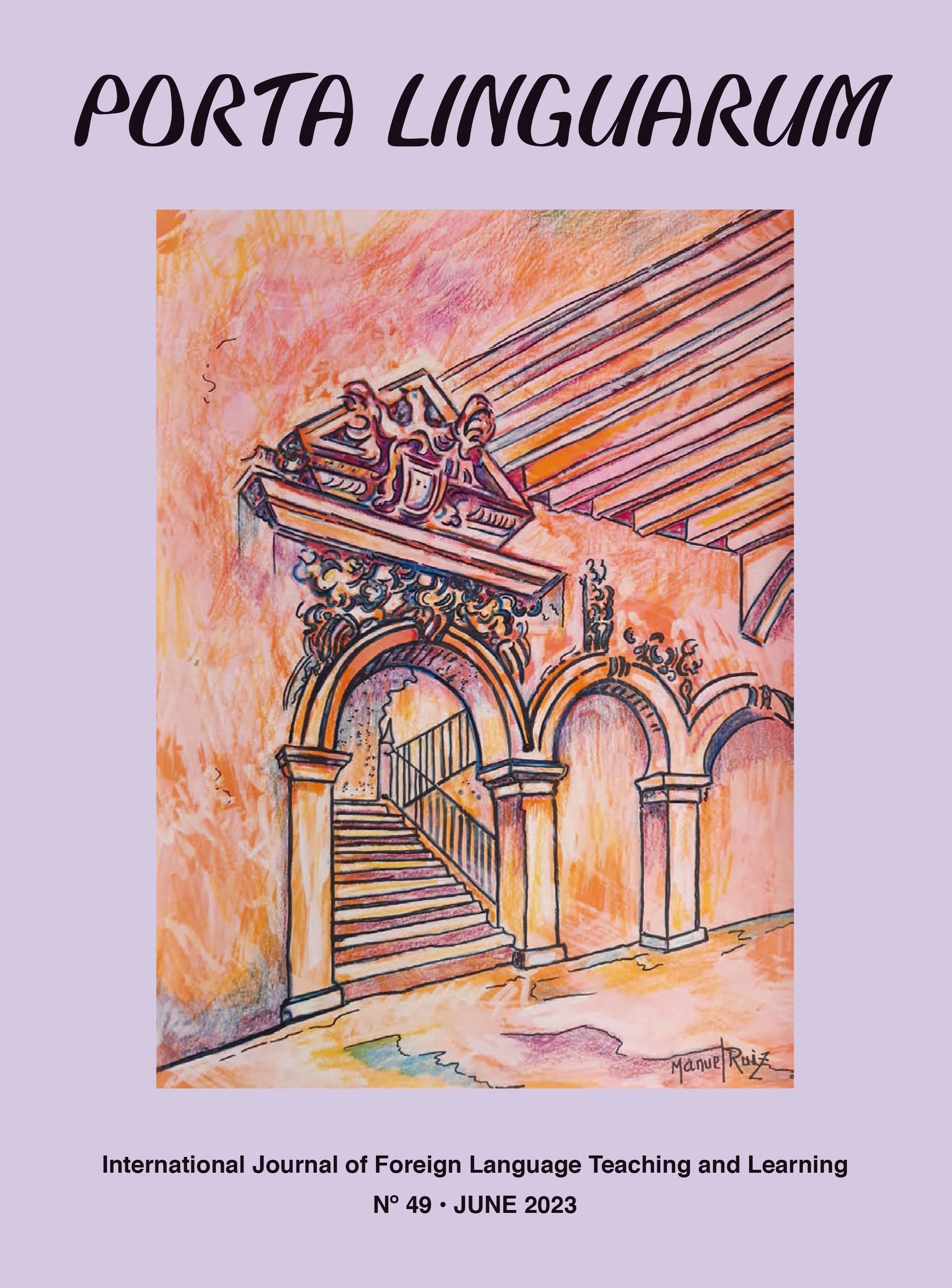Educating for global citizenship and peace through awakening to languages: A study with institutionalised children
DOI:
https://doi.org/10.30827/portalin.vi40.26655Keywords:
global citizenship education, positive peace, awakening to languages, institutionalised children, case studyAbstract
Global citizenship education (GCE) has been deemed an educational imperative to respond to the times of unprecedented change we are living in. Existing research with preschool children indicates that GCE nurtures personal respect and respect for others, and raises children’s civic engagement, which are fundamental aspects in creating and sustaining peaceful societies. Despite this, empirical studies focusing on GCE pedagogies for the early years are still lacking, particularly with vulnerable groups of children. This qualitative case study aims to understand the contribution of the Awakening to Languages approach in the development of attitudes, values and skills conducive to global citizenship and positive peace. The study was conducted with a group of Portuguese children aged 3 to 6 living in a care home run by a religious congregation. Children participated in a five-month project titled ‘A house where we all fit’, which included multilingual activities and virtual exchanges with children in similar institutions in Colombia and Tanzania. Data were collected via questionnaires, self-assessment sheets and fieldnotes, which were treated using descriptive statistics or content analysis. Results suggest that the activities promoted children’s awareness of and respect for diversity, raised their self-knowledge and self-esteem, and developed communication and collaboration skills.
Downloads
References
Andreotti, V. (2016). Global education and social change: The imperative to engage with different discourses. In H. Hartmeyer & L. Wegimont, L. (Eds.), Global education in Europe revisited: Strategies and structures, policy, practice and challenges (pp. 199–203). Waxmann.
Bamber, P., Lewin, D., & White, M. (2018). (Dis-)Locating the transformative dimension of global citizenship education. Journal of Curriculum Studies, 50(2), 204–230. https://doi.org/10.1080/00220272.2017.1328077
Ben Maad, M.R. (2020). Any role for foreign languages in promoting children’s critical thinking? The case of stereotyping. Language Awareness, 29(1), 60–77. https://doi.org/10.1080/09658416.2019.1686508
Ben Maad, M.R. (2016). Awakening young children to foreign languages: openness to diversity highlighted. Language, Culture and Curriculum, 29(3), 319–336. https://doi.org/10.1080/07908318.2016.1184679
Candelier, M. (Ed.). (2004). Janua Linguarum – The gateway to languages. The introduction of language awareness into the curriculum: Awakening to languages. Council of Europe.
Candelier, M., & Kervran, M. (2018). 1997-2017: Twenty years of innovation and research about Awakening to Languages-Evlang heritage. International Journal of Bias, Identity and Diversities in Education, 3(1), 10–21. https://doi.org/10.4018/ijbide.2018010102
Coelho, D., Andrade, A.I., & Portugal, G. (2018). The ‘Awakening to Languages’ approach at preschool: developing children’s communicative competence. Language Awareness, 27(3), 197–221. https://doi.org/10.1080/09658416.2018.1486407
Dias, T. (2016). Educação para a paz no jardim de infância: uma educação livre de conflitos [Peace education in kindergarten: a conflict-free education] [Unpublished master’s thesis]. Universidade de Aveiro, Aveiro, Portugal. http://hdl.handle.net/10773/21396
Galtung, J. (1996). Peace by peaceful means: Peace and conflict, development and civilization. Sage.
Galtung, J. (1969). Violence, peace, and peace research. Journal of Peace Research, 6(3), 167–191.
Hancock, R.E. (2017). Global citizenship education: Emancipatory practice in a New York preschool. Journal of Research in Childhood Education, 31(4), 571–580. https://doi.org/10.1080/02568543.2017.1346731
Hawkins, E. (1987). Awareness of language: An introduction (revised ed.). Cambridge University Press.
Institute of Social Security (2007). Portuguese Child Policy Social Security. Institute of Social Security, I.P, Portugal.
Jares, X.R. (2002). Educação para a paz: sua teoria e sua prática [Education for peace: its theory and practice] (2nd ed.). Artmed.
Ki-Moon, B. (2012). Global Education First Initiative. United Nations.
King, M.L. (1968). Where do we go from here: Chaos or community? Beacon Press.
Lourenço, M., & Andrade, A.I. (2014). Promoting phonological awareness in pre-primary education: Possibilities of the ‘awakening to languages’ approach. Language Awareness, 23(4), 304–318.
Oxfam. (2015). Education for global citizenship: A guide for schools. Oxfam GB.
Pashby, K., da Costa, M., Stein, S., Andreotti, V. (2020). A meta-review of typologies of global citizenship education. Comparative Education, 56(2), 144–164. https://doi.org/10.1080/03050068.2020.1723352
Pearce, D.R., Oyama, M., Moore, D., & Irisawa, K. (2020). Plurilingualism and STEAM: Unfolding the paper crane of peace at an elementary school in Japan. International Journal of Bias, Identity and Diversities in Education, 5(2), 1–23. https://doi.org/10.4018/IJBIDE.2020070101
Twigg, D., Pendergast, D., & Twigg, J. (2015). Growing global citizens: Young children’s lived experiences with the development of their own social world. International Research in Early Childhood Education 6(1), 79–91.
UNESCO (2014). Global citizenship education: preparing learners for the challenges of the 21st century. UNESCO.
United Nations (2015). Transforming our world: The 2030 Agenda for Sustainable Development. United Nations.
Wintersteiner, W. (2019). Peace education for global citizenship: The genuine global dimension of Betty Reardon’s concept of Peace Education. In I. Breines (Ed.), Exploring Betty A. Reardon’s perspective on peace (pp. 15–28). Springer.
Yin, R. K. (2009). Case study research: design and methods (4th ed.). Sage.



















